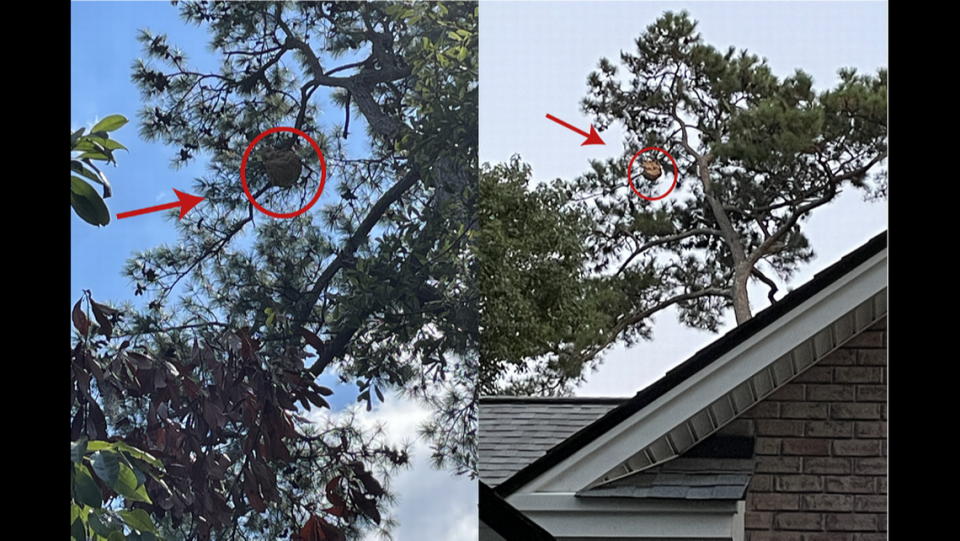Invasive, bee-eating hornet found in Georgia alarmed experts. Then they found a nest
Two weeks after Georgia officials confirmed the arrival of the yellow-legged hornet in the U.S., they have found and eradicated the first nest.
On Aug. 9, the Georgia Department of Agriculture verified the first sighting of a yellow-legged hornet, a wasp species from Southeast Asia that feeds on honey bees. The hornet was spotted by a beekeeper in Savannah, the department said in a news release on Aug. 15.
Officials announced the eradication of the first nest near Savannah in a news release on Aug. 25.
Officials sounded the alarm over the hornet’s discovery. The hornets have a preference for eating honey bees, which are a main engine of the pollination cycle that drives the state’s agriculture industry.
“In order to protect our number one industry, it is vital that we eradicate this hornet from our state,” Georgia Agriculture Commissioner Tyler Harper said in an Aug. 25 news conference streamed on Facebook.
Harper stood next to the remains of the nest, which he said was first discovered 85 feet off the ground in a tree on Aug. 18.

The hornets have been sighted several times since the first one was discovered, Harper said. This led officials to the nearby nest.
GDA experts and pest control removed the nest on the evening of Aug. 23, according to GDA’s news release. A pest control company and a tree surgeon sprayed the nest with insecticide to kill the hornets, then the tree surgeon climbed up to the nest and cut it down.
“We are confident the vast majority of the hornets that were in that nest were eradicated,” Harper said in the conference.
He added that any hornets they may have missed are incapable of reproducing and will likely die shortly.
The yellow-legged hornet’s nest can hold an average of 6,000 workers, according to the GDA.
Experts will continue to monitor the area, and they’re asking the public for help reporting any sightings of the hornet. So far, the hornet has only been spotted in the Savannah area, officials say.
“This is a huge win for Georgia agriculture,” Harper said.
A new invasive species of hornet found in US, experts say. It feasts on honey bees
Swarming bees attack, injuring seven people at Texas park, officials say
They emit toxins and can respawn if you try to kill them. Meet this invasive species
Bats show erratic behavior in Arches National Park — including one biting a visitor


